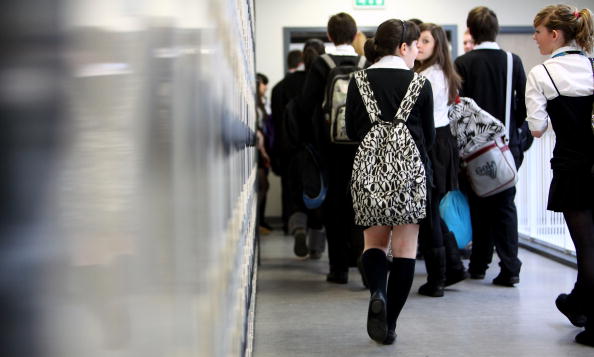Church of England could run a quarter of new free schools within four years
Humanists argue the Church's plan to open more than 100 schools is 'counterproductive' and 'out of step with the beliefs of the population'

Your support helps us to tell the story
From reproductive rights to climate change to Big Tech, The Independent is on the ground when the story is developing. Whether it's investigating the financials of Elon Musk's pro-Trump PAC or producing our latest documentary, 'The A Word', which shines a light on the American women fighting for reproductive rights, we know how important it is to parse out the facts from the messaging.
At such a critical moment in US history, we need reporters on the ground. Your donation allows us to keep sending journalists to speak to both sides of the story.
The Independent is trusted by Americans across the entire political spectrum. And unlike many other quality news outlets, we choose not to lock Americans out of our reporting and analysis with paywalls. We believe quality journalism should be available to everyone, paid for by those who can afford it.
Your support makes all the difference.A quarter of new free schools could soon be run by the Church of England, a move which humanists have argued is “entirely out of step” with modern British values.
In a major expansion of its education programme, the church has announced plans to open 125 more schools by 2020 under the government’s new free-school agenda, which will result in 500 new schools in total.
A policy paper distributed to members of the Church’s general synod, which met in York at the weekend, said: “There is a unique opportunity for the Church of England to renew and enhance its contribution to the education of our nation’s children, especially through the expansion of Church of England free schools, an opportunity which should be seized wholeheartedly.”
“Standing still is not an option: we will either seize the opportunity or our contribution to state education will decline.”
There are currently around 4,700 Church of England schools in the country, including 11 free schools, educating more than one million pupils.
The church is already the largest single provider of schools and academies in England, and many of these schools are oversubscribed.
The Reverend Nigel Genders, chief education officer for the Church of England, said: “The need to set out our stall in an increasingly fragmented educational scene, and where wellbeing of young people is of national concern, is clear.”
“Through this vision, pupils, parents, new and existing schools and teachers will know how aspiring we are for them and how we will best support them in future years.”
But the British Humanist Association has criticised the new plans, saying they are “counterproductive”, as well as “entirely out of step with the beliefs of the population and the wishes of the vast majority of parents”.
Andrew Copson, chief executive of association, said: “Let’s call this push for increased influence in schooling for what it is: a cynical attempt by the Church to stop the rot and boost its numbers both through the evangelising of children and through the quite shameful practice of requiring parents to sit on pews simply to ensure their children can get a place at a local school.”
”Creating more faith schools when the number of people they can appropriately cater for continues to decline is counterintuitive and counterproductive,“ he added.
The National Secular Society (NSS) said in response to the plans that the government should not allocate huge proportions of the education system to “a church seemingly in terminal decline”.
“The significant changes we’re seeing in the country’s religion and belief landscape means the church’s role in state education needs to be diminished not expanded,” said Stephen Evans, the NSS campaigns director.
“In a religiously diverse and secularised society it makes little sense to organise education along religious lines. The additional school places needed should be created in secular and inclusive schools equally welcoming to all pupils, irrespective of their faith backgrounds.”
Ahead of the 2015 general election, Prime Minister David Cameron pledged to create at least 500 more free schools, creating an extra 270,000 school places if his party was re-elected.
The government maintains that free schools – state-funded start-ups which remain outside local authority control – help improve educational standards.
Free schools are not allowed to make a profit, but can be set up and run by parents, teachers, charities, businesses, universities, trusts, religious or voluntary groups. They can set their own curriculum but cannot be academically selective.
The Church of England says its schools are open to children of all faiths and no faith, although church attendance is often a criterion for admission in oversubscribed schools.
Join our commenting forum
Join thought-provoking conversations, follow other Independent readers and see their replies
Comments